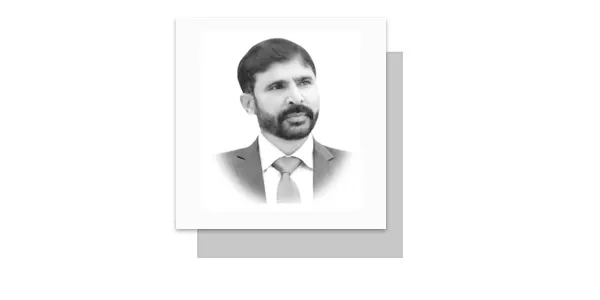The creation of the European Economic Community (EEC) in 1957 was driven by a combination of external and internal threats, primarily the Soviet Union’s expansionist ambitions and the need to integrate Germany into Europe to prevent a resurgence of its hegemonic tendencies.
The EEC was established under the security umbrella of NATO, with the United States providing a unilateral security guarantee to Western Europe.
The founding fathers of the EEC, such as Konrad Adenauer, Alcide De Gasperi, Robert Schuman, Joseph Bech, and Walter Hallstein, were pro-integration elites who shared Christian values and believed in a common European identity rooted in these values.
The Treaty of Rome, which established the EEC, aimed to unleash Europe’s economic potential through the creation of a Common Market, while the Franco-German partner-ship was intended to provide leadership and stability.
The Treaty also included mechanisms to ensure socio-economic cohesion, such as the European Social Fund and later structural and cohesion funds, to support regions and sectors vulnerable to the effects of market competition.
The integration process was designed to replace power politics with rule-based negotiation and coalition-building within the institutional framework of the EEC.
This was intended to mitigate the natural core-periphery divisions that arise in unregulated markets.
The pro-integration elite consensus on fundamental and instrumental values underpinned this process.
However, by the turn of the 21st century, the European Union (EU) faced significant challenges due to structural changes that led to political polarization within Western European societies.
The rise of both left-wing and right-wing populism was a response to the nega-tive effects of globalization, including deindustrialization, job insecurity, and mass immigration.
Right-wing populism, in particular, emphasized the loss of national identity and cultural cohesion, while left-wing popu-lism focused on multiculturalism and identity politics.
Both forms of populism were skeptical of the EU, viewing it as a stronghold of economic liberalism and, for the right, cultural and moral relativism.
The EU also faced a value divide between its “old” and “new” Member States, particularly those from Central and Eastern Europe that joined in 2004.
Surveys, such as the 2018 Pew survey and the 2022 World Values Survey, highlighted significant differences in attitudes toward European identity, religion, national identity, and moral issues between Western and Eastern Europeans.
Eastern Europeans tended to emphasize Christian heritage, national pride, and traditional family values, while Western Europeans were more secular and accepting of multiculturalism and moral revolutions, such as same-sex marriage and abortion.
This value divide was rooted in the unique historical experiences of Central and Eastern Europe, where nations had struggled for sovereignty and identity in the face of external threats and Western indifference.
The region’s collective memory of ethnic purges and forced resettlements during and after World War II contributed to a strong attachment to national identity and a skepticism toward multiculturalism and post-sovereignty narra-tives.
The value divide within the EU was further exacerbated by the immigration crisis of 2015 and the rise of identity politics in the West.
Eastern European Member States, along with growing segments of Western European societies, resisted the EU’s push for multiculturalism and questioned the legitimacy of liberal de-mocracy.
This resistance was particularly evident in the backlash against Germany’s “Willkommenskultur” (welcome culture) and the EU’s handling of the migration crisis.
The EU’s response to these challenges has been to deepen integration and enforce a uniform interpretation of “common European values” as outlined in Article 2 of the Treaty on European Union (TEU).
However, the meaning of these values such as human dignity, democracy, rule of law, and equality has become increasingly contested.
For example, the right to abortion is seen as a human right by some and as the arbitrary taking of human life by others.
Similarly, the rule of law can be interpreted as the application of legal texts according to their ordinary meaning or as a dynamic interpretation based on changing societal circumstances.
The EU has increasingly used legal and institutional mechanisms to enforce its interpretation of these values, often at the expense of Member State sovereignty.
The European Commission and the Court of Justice of the European Union (CJEU) have ex-panded their powers to intervene in Member States’ internal affairs, particularly in areas related to the rule of law, fundamental rights, and social policies.
This has led to accusations of “moral imperialism” by the EU, particularly from Central and Eastern European Member States, which view these actions as an attempt to impose Western liberal values on their more traditional societies.
The EU’s approach to enforcing common values has been further institutionalized through mechanisms such as the Rule of Law Conditionality Regulation, which allows the EU to withhold funds from Member States deemed to be in violation of the rule of law.
This has been criticized as a tool for political pressure, particularly against Poland and Hungary, which have been accused of undermining liberal democracy.
The CJEU has upheld the legality of these measures, further entrenching the EU’s role as a moral arbiter.
The prospect of further EU enlargement, particularly to the Western Balkans and Ukraine, has been used as a pretext for deeper federalization and the elimination of national vetoes in key policy areas.
Proposals for reform, such as the 2023 French-German report “Sailing on High Seas,” advocate for stronger budgetary conditionality and the removal of unanimity requirements in the Council, further centralizing power in the hands of the EU institutions and the more influential Member States
—The writer, a PhD scholar, is associated with Islamia University Bahawalpur.
Email: akramzaheer86@yahoo.com


















